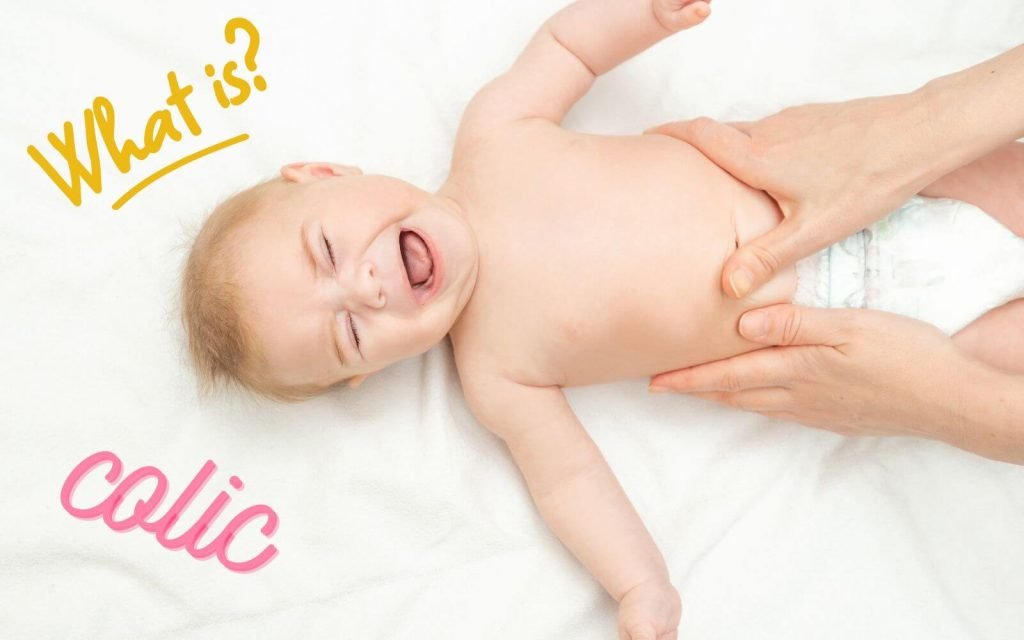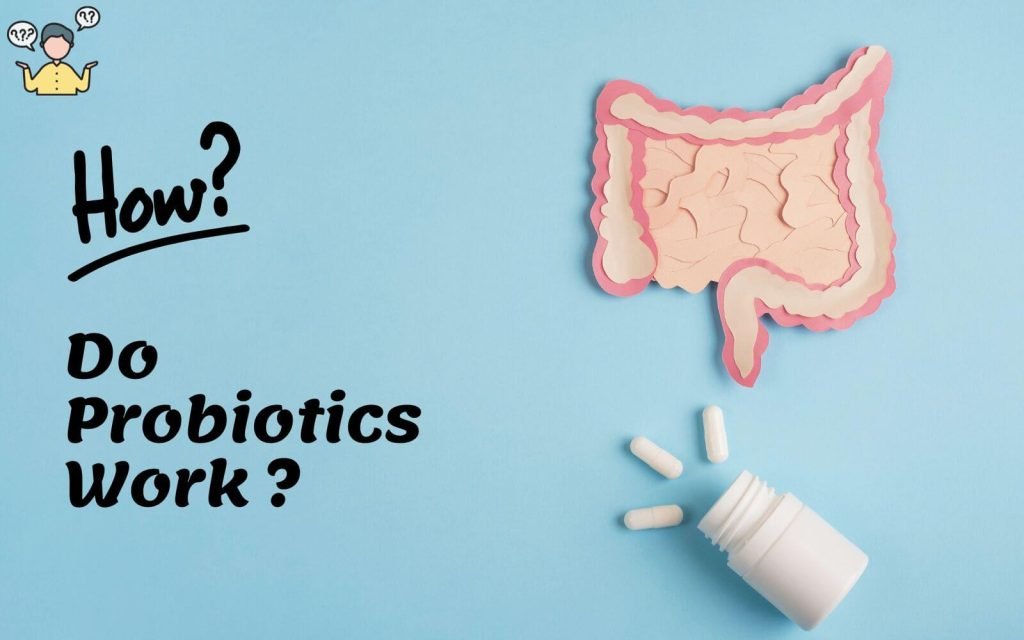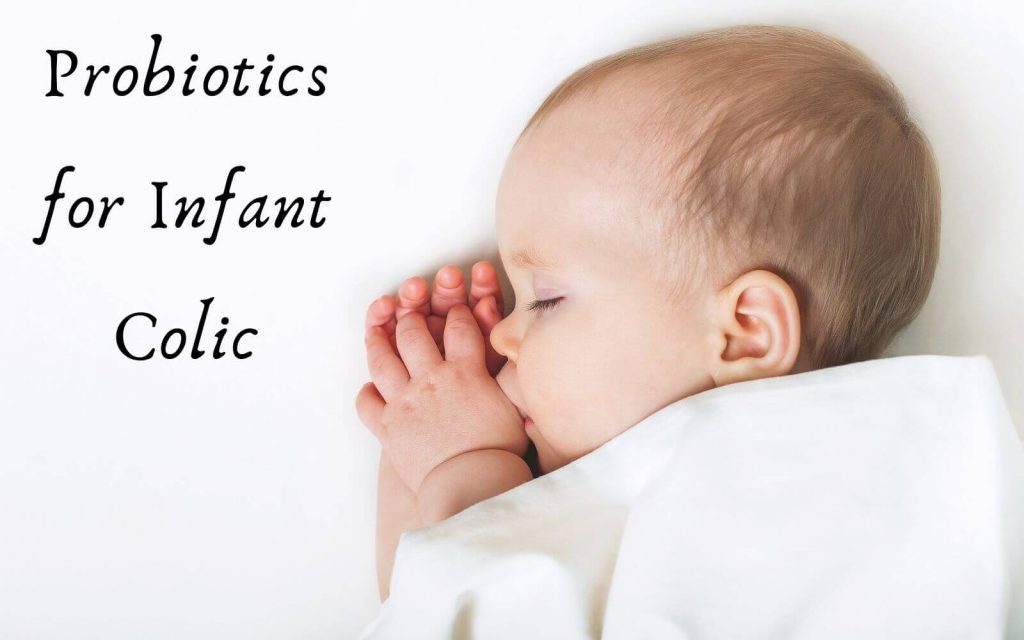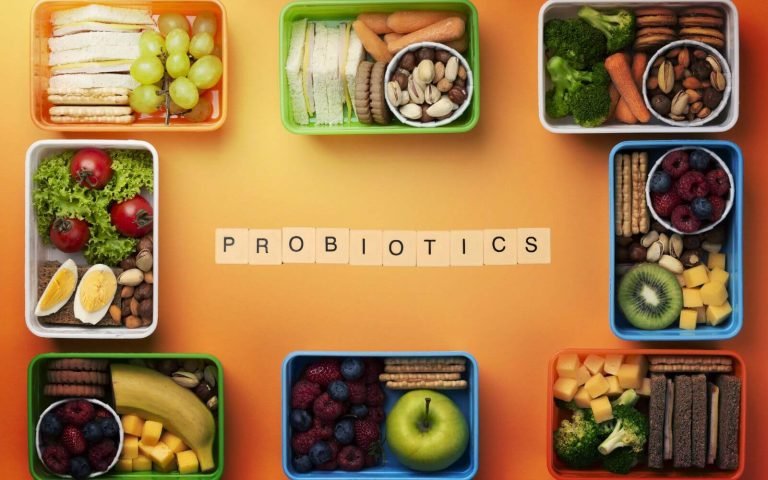Probiotics for Colic in Babies: Can They Truly Help?

If you’re a parent dealing with a crying baby who seems inconsolable, you might be wondering if there’s something more you can do. Colic, especially infant colic, can be overwhelming for both parents and babies, often defined as crying for more than three hours a day, three days a week, for at least three weeks.
Many parents are exploring probiotics for colic in babies as a potential solution, hoping that these beneficial bacteria might help ease their baby’s discomfort. But do they really work? Let’s look at how probiotics like Lactobacillus reuteri DSM 17938 could help manage colic in babies.
We’ll examine the research behind probiotics for colic in babies, how they may work, and whether they’re worth trying for your newborn.
Key Takeaways – Probiotics for Colic in Babies
- Colic is one of the most common reasons for excessive crying in newborns, especially within the first few months of life.
- Some studies suggest that certain probiotic strains, such as Lactobacillus reuteri DSM 17938, might reduce the duration and frequency of crying in colicky infants.
- The treatment of infantile colic with probiotics has shown promising results, particularly in infants who are exclusively breastfed.
- Before using any probiotic supplements, it’s important to consult with your pediatrician.
What Is Colic?

Colic is defined as frequent, prolonged crying in an otherwise healthy baby. The crying typically lasts for more than three hours a day, more than three days a week, for at least three weeks. Colic usually starts within the first few weeks of life and can persist until the baby is around six months of age.
The exact cause of colic is still unknown, but it’s often linked to digestive discomfort or functional gastrointestinal disorders. This is where probiotics, like Lactobacillus and bifidobacteria, come into play, as they may help balance the gut bacteria in newborns.
How Do Probiotics Work?

Probiotics are live bacteria that are beneficial for gut health. They help by balancing the gut microbiome, which may reduce gas, bloating, and digestive discomfort. In infants with colic, it’s believed that an imbalance in gut bacteria could contribute to their symptoms.
Probiotics and prebiotics may support healthy digestion by increasing the growth of beneficial bacteria while inhibiting harmful ones like enterobacteriaceae.
The most studied probiotic strain for colic is Lactobacillus reuteri DSM 17938. This specific probiotic has been shown to reduce the duration and frequency of crying in babies with colic, particularly those who are exclusively breastfed.
Do Probiotics Help with Infant Colic?

Several studies have investigated the effects of probiotics on colic using controlled trials. Some have shown promising results, while others reported no significant difference when compared with the placebo group. Let’s look at some key findings:
1. Lactobacillus reuteri DSM 17938 and Colic
This probiotic strain has been the focus of many studies on colic. In one randomized clinical trial, researchers found a reduction in crying time in infants treated with Lactobacillus reuteri DSM 17938 compared to a placebo group. Infants in the probiotic group experienced a decrease in crying by about 50% after just 21 days of probiotic use.
Another study reported that infants with colic who were treated with this probiotic showed a significant difference in the duration of crying compared to those in the placebo group. The results were especially positive in breastfed babies, suggesting that the combination of breastfeeding and probiotics might be particularly effective in managing infantile colic.
2. Probiotics and Prebiotics for Colic
Other probiotic strains, such as bifidobacteria, have also been explored in the management of infantile colic. Though research on these strains is less robust, some studies suggest that they may help improve gut health, reducing symptoms like gas and bloating, which are often associated with colic.
3. Placebo-Controlled Trials
In several randomized controlled trials, probiotics were compared with placebos. Results varied, with some showing a reduction in crying and others showing no significant improvement. One study found that while there was a reduction in crying in the probiotic group, it wasn’t dramatically different from the placebo group.
This highlights the need for further research.
Safety of Probiotics for Newborns

The use of probiotics for infantile colic is generally considered safe, but it’s crucial to choose the right probiotic supplement designed specifically for infants. Look for a product containing strains like Lactobacillus reuteri DSM 17938 or bifidobacteria, as these are the most studied for colicky babies.
Some important points to consider:
- Consult your pediatrician before starting probiotics.
- Follow the dosage instructions on the probiotic supplement carefully.
- Monitor your baby for any adverse effects, though these are rare. Some infants may experience mild gas or bloating when first introduced to probiotics.
Additional Ways to Manage Infant Colic

While probiotics for infantile colic may be helpful, they’re not the only solution. Here are some other ways to soothe your baby:
- Adjust feeding techniques: Babies who swallow a lot of air while feeding may experience more gas, which can worsen colic symptoms.
- Tummy time and massage: Gentle tummy time and massages can help relieve gas and digestive discomfort.
- Comforting methods: Rocking, swaddling, or using white noise can help calm a crying baby.
Summary
Infantile colic is one of the most common challenges for new parents, but probiotic use—particularly with Lactobacillus reuteri DSM 17938—offers a promising solution for managing colic symptoms. Although the research is not entirely conclusive, several studies have shown that probiotics can reduce the frequency and duration of crying in colicky infants, especially those who are breastfed.
Always consult your pediatrician before starting any probiotic treatment, and be aware that results can vary from baby to baby.
Frequently Asked Questions
1. Can Probiotics Help Treat Colic?
Yes, certain probiotic strains, like Lactobacillus reuteri DSM 17938, have been shown to reduce crying in infants with colic, especially when compared with a placebo group in clinical trials.
2. How Long Does It Take for Probiotics to Work on Colic?
Most studies suggest that parents may see improvements in crying within one to two weeks of starting probiotic use. However, some results may take up to three weeks.
3. Are Probiotics Safe for Infants?
Probiotics are generally safe for healthy infants, especially when using strains designed for babies. However, it’s important to consult a pediatrician before introducing probiotics.
4. Are Probiotics More Effective for Breastfed Babies?
Studies have shown that probiotics, particularly Lactobacillus reuteri DSM 17938, tend to be more effective in exclusively breastfed infants compared to formula-fed babies.
5. What Other Treatments Are There for Colic?
In addition to probiotics, parents can try adjusting feeding techniques, providing tummy time, and using soothing methods like swaddling or rocking.





